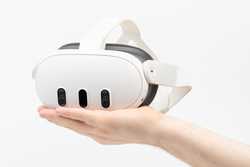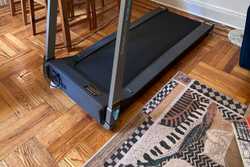- Price: $4.49
- Number in package: 3
- Type: Pressurized competition
- Ideal court: Hard courts
Best Tennis Balls 2024: The Top Picks for Your Next Match
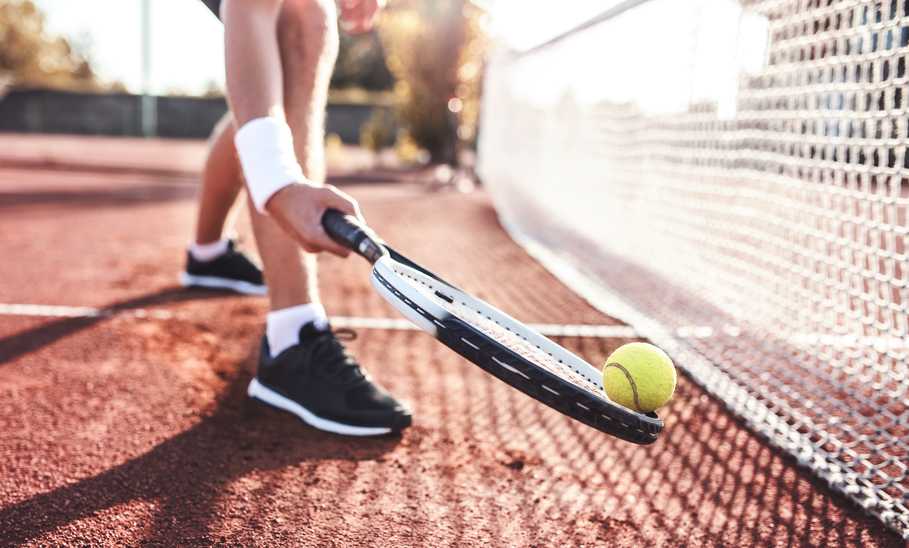
Our evaluations and opinions are not influenced by our advertising relationships, but we may earn a commission from our partners’ links. This content is created by TIME Stamped, under TIME’s direction and produced in accordance with TIME’s editorial guidelines and overseen by TIME’s editorial staff. Learn more about it.
Sure, all fuzzy yellow tennis balls may look the same at a glance, but you may be surprised at how much a ball’s composition can affect your gameplay. You need the right tennis ball to suit your performance needs and court type, so after plenty of research, time on the court, and a sore wrist, we’re happy to point beginners and seasoned pros in the right direction to find tennis balls they’ll love.

After a few fast-paced matches with these balls, it’s easy to see why Dunlop is the official tennis ball brand of the United States Professional Tennis Association. While other professional-level pressurized tennis balls will begin to wear out relatively quickly, Dunlop’s ATP Tour Gold tennis balls sport a noticeably more durable shell and long-lasting felt, a strong core, and a reliable bounce, speed, and control across indoor and outdoor hard courts.
In addition, Dunlop’s signature HD Pro Cloth technology provides an eye-catching neon yellow hue that’s extremely easy for beginners and veterans alike to follow, while its smooth felt cuts through the air for impressively precise play that advanced players will appreciate.
The only major downside to this model is how its minimalist felt covering feels like a dirt magnet when played on dirtier courts, but between its longevity and premium design, it’s the best option for competitive hard court play.

Wilson’s endeavor to produce an environmentally friendly tennis ball with biodegradable packaging is a noble one, and thankfully, Triniti Sustainability Tennis Balls sport a comfortable and professional feel that sets them far above the average pressureless tennis ball. (Though you may miss that satisfying sound of opening a fresh can of tennis balls.)
Optimized for all court surfaces, Triniti Sustainability balls feature the control and dependability of pressurized tennis balls, but with additional durability to sustain its level of bounce for many weeks longer than their pressurized counterparts.
Featuring the control, spin, and overall feel of pressurized tennis balls and the longevity and durability of pressureless balls, the most eco-friendly tennis balls on the market are easily the best pressureless tennis balls out there.

Chicken, beer, toy soldiers—it’s tough to argue with anything that comes in a bucket, and this set of practice balls is no exception. The bundle includes 48 long-lasting, pressureless, vibrant high-contrast yellow tennis balls optimized for all course types, and include a resilient core coated in a wear-resistant felt that helps each ball to keep from going flat for longer than you may expect.
The bucket itself makes it a snap to carry, grab, collect, and store your balls for every practice, and is a cost-effective and environmentally friendly way to practice with a ball machine or with friends. Serious beginners will appreciate the convenience, longevity, and overall value of this collection.

While returning balls from a tennis machine is an excellent way to practice your timing and footwork, the wrong tennis balls will lose their performance much faster than during normal play, or worse, they may damage your expensive machine. However, since you need more tennis balls to fill your machine, you don’t want to end up paying a small fortune.
Not only are Franklin Pressureless tennis balls optimized for tennis machines, they play well on all court surfaces, and hold their shape and bounce uniformly for a long time. Overall, these high-visibility and ruggedly made, pressureless tennis balls are well-suited for players of all skill levels to practice their shot consistency with a tennis machine.
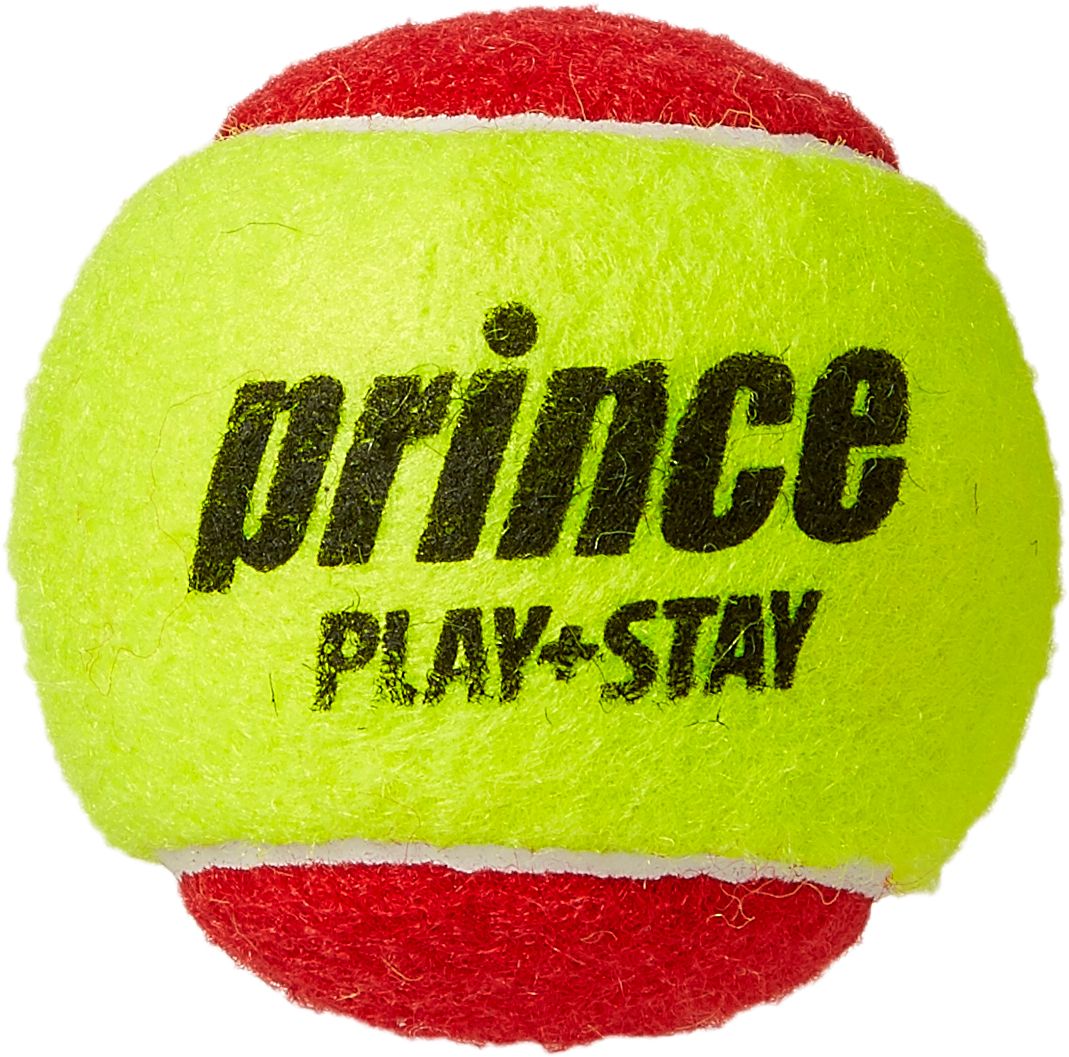
If you’re a tennis newbie, it’s a good idea to start off with a special variety of tennis ball for beginners, as normal tennis balls are often too fast, hard, and bouncy for newcomers to keep up with. As such, anyone getting into tennis for the first time will appreciate the slower speed and versatility of these colorful Prince Stage 3 Youth tennis balls. A little larger, softer, and moving at about 75% the speed of normal balls, the bold red and yellow color combo is especially helpful to teach beginners how to track the ball as they play.
Sturdy, perfectly suited for all court types, and sporting a unique performance suited to get beginners acclimated to the game, we highly recommend these Prince tennis balls for all novices aged 12 and up. As you become more comfortable with the fundamentals, transition to a traditional ball.
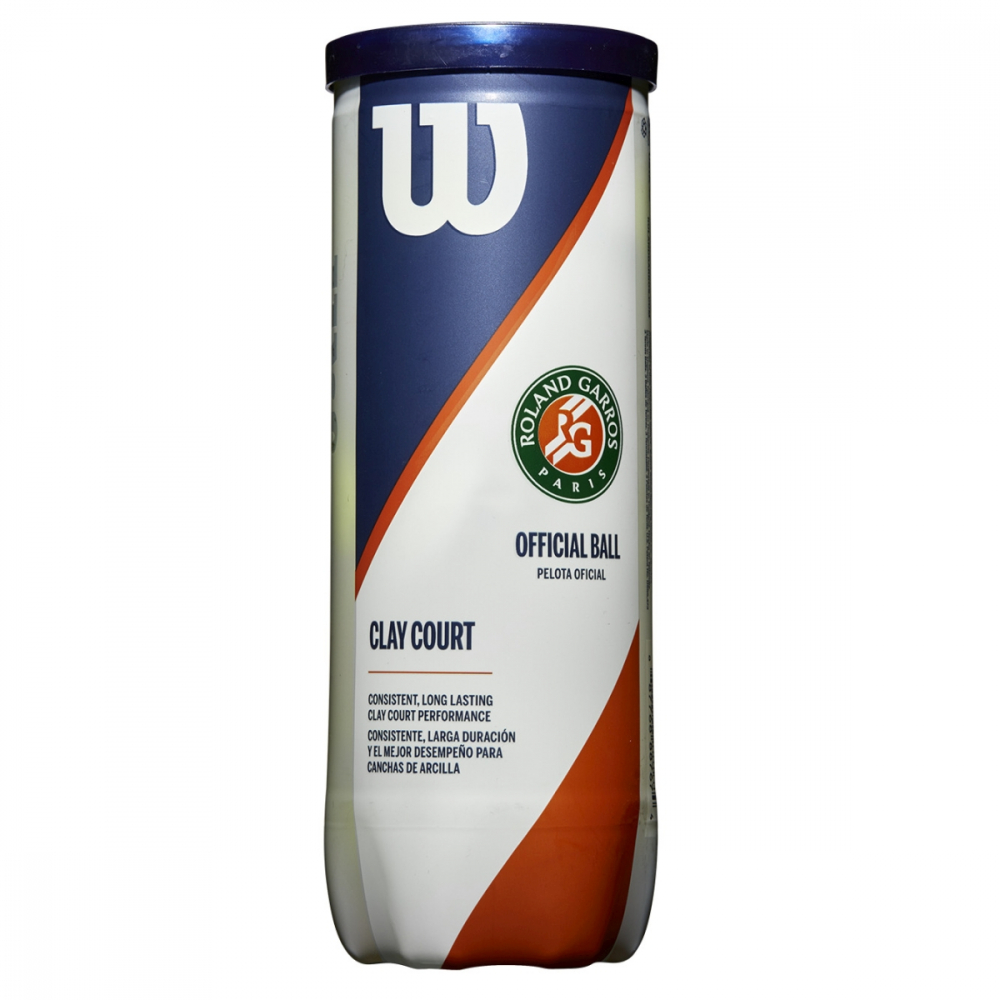
Anyone playing tennis on a clay court needs a ball made with a felt capable of enduring impacts against the rough surface, shrugging off dirt, and sporting a reliable speed, bounce, and overall ball control to match the slower clay surface. That’s why this premium model became the official tournament ball for the French Open’s clay courts in 2021.
The Wilson Roland Garros Har Tru features a core completely made of premium rubber, which provides the high level of control needed to offset the additional friction and spin that comes from playing on clay. In addition, we found that its extra-smooth felt helps it to cut through the air more efficiently, while staying relatively clean during play.
Although these balls are capable of reliably smooth play across all court surfaces, there’s no reason to seek these out unless you’re looking for high-end play on a rough clay court.

Since normal tennis balls are affected by the thinner air at altitudes of 4,000 feet or more, traveling faster and bouncing higher than they normally would, tennis players living in higher altitudes should seek out specialized balls for a better experience.
Penn’s High-Altitude tennis balls are designed with a lower internal pressure than the average ball, which helps to offset the thinner air, providing a reliably consistent bounce, slower speed, and level of control that you would expect to have if you were playing at sea level. Durable, made for playing across all court types, and fairly priced, these are hands-down the top pick for playing the best game of tennis you can at high elevations.

Competition tennis balls need to deliver a consistent speed, bounce, and level of control, while easily enduring your preferred court type. As such, the versatility and dependability of the Wilson US Open doesn’t disappoint.
Approved by the US Open, these professional-grade tennis balls effortlessly hold up across all court types throughout intense high-level play, while retaining the shape, bounce, and control you would expect from a competition-grade model. Although they don’t last nearly as long as their pressureless counterparts, Wilson US Open Extra-Duty balls provide high-end players with a dependable professional performance, no matter where or how hard you play.
We selected the best tennis balls available based upon countless hours of research, hands-on testing, and our own extensive experience. Durability, ball control, performance, and value for your purchase were some of the many considerations we had in mind as we sorted through a sizable range of tennis balls.
Let’s start with the factors you should consider when choosing a tennis ball:
Player proficiency: Novices should start out by investing in inexpensive, pressureless, and special beginner-friendly tennis balls that are lighter, brightly colored, and generally easier to control. Longtime players will get more value out of pressurized tennis balls for the fine-tuned control, reliable bounce, and the advanced performance these kinds of balls are made for.
Court type: Whether you plan on playing indoors or on grass, clay, or a hard surface, there is a tennis ball made to provide a premium performance for your preferred court type. It’s absolutely worth your time to seek out a tennis ball to match your favorite court to get the most out of your matches and practice time.
Practice vs. competition: If you’re returning serves from a machine or having a light game with a friend, consider buying a few pressureless tennis balls. These balls will give you the most bang for your buck due to their longevity, especially if you’re just starting out.
For advanced players, you’ll want to invest in a few tubes of premium pressurized balls for the precise control, consistent bounce, and overall performance you need to play your best. If you’re going up against another top-tier player we highly advise looking for especially durable models, because it’s especially disappointing to watch lesser tennis balls come apart after a few hard-hitting matches.
There are way more types of tennis balls than you may have realized, especially if you’re new to the sport. Here are the main ones you’ll encounter:
Pressurized: These balls are filled with pressurized air for a lighter and bouncier feel right out of the can. These are best for professional play, but aren’t as durable as pressureless balls and tend to lose their consistency anywhere from two to nine days after their pressurized container has been opened.
Pressureless: Heavier and far sturdier than pressurized tennis balls, pressureless balls are best reserved for practice and lighthearted matches, since it takes a little more force to effectively hit the ball back.
High-altitude: These are specialized, pressurized tennis balls with a lower air pressure than regular pressurized balls, making them slower and easier to control in altitudes of 4,000 feet and above. This is needed, as normal pressurized balls travel far more quickly and are much bouncier at high elevations.
Practice: For practice sessions, many people prefer these sturdy, pressurized balls that are often a little larger, softer, lighter, and vibrantly colored, to help new players to practice their footwork, swing, and learn to track the ball while playing.
All-court: Designed for all court surfaces, from indoor and carpet to clay and grass.
Regular Duty: Optimized for clay and grass courts, these balls feature shorter felt to minimize dirt and debris collection while playing.
Extra Duty: These are made for hard courts, and feature a thicker felt exterior to absorb the impact from repeatedly bouncing on solid surfaces.
There are many competing tennis ball brands on the market, but some of the biggest and most popular include Dunlop, Penn, Wilson, and Franklin.
These brands are well-respected by players and fans, and major tennis events are known for adopting an official ball. For example, the French Open has claimed the Wilson Roland Garros as theirs.
It doesn’t matter if you’re a seasoned professional or are picking up the racket for the first time, some of the most important aspects to consider when looking for great tennis balls include:
The exterior shell of a tennis ball is made of two pieces of rubber, lined with fine wool or nylon. The inside of a competition-grade tennis ball is filled with pressurized gas for that extra bounciness and fine-tuned control needed for pro-level play.
Although tennis balls are available in a rainbow of vibrant hues, yellow tennis balls are the norm because the International Tennis Federation decided, in 1972, that neon-yellow would make it especially easy for viewers to keep track of the ball when watching tennis matches on TV.
For competitive play, tennis balls last anywhere between one to three hours of nonstop play, but the average tennis player will get one to four weeks out of their tennis balls.
As a side-note, pressurized tennis balls will last approximately two years, as long as the container’s seal remains intact, but unpressurized tennis balls will last anywhere from one to three years of regular use before they should be replaced.
Pressurized tennis balls lose their bounce as the pressurized gas within slowly leaks out. The more you play, the more quickly tennis balls leak that internal air, but note that tennis balls in storage are slowly leaking and losing their signature bounce as well. This is why it’s better to buy pressurized tennis balls from retailers that regularly sell tennis balls, so you avoid the risk of buying a bad batch.
Absolutely! While you may be used to standard pressurized tennis balls, other varieties include “extra duty” for hard courts, “regular duty” for clay courts, and “high-altitude” balls for playing at elevations of 4,000 feet or higher.
According to the International Tennis Federation, a tennis ball should weigh between 1.98 to 2.10 ounces, and have a diameter of between 2.575 inches and 2.7 inches.
There are multiple specialized tests run within the International Tennis Federation Laboratory to ensure that certified tennis balls are worthy of tournament-level play. This climate-controlled lab uses precise testing equipment to check deformity level (how the ball changes shape after getting hit by tennis rackets,) level of rebound, and overall durability.
For example, tennis balls are dropped from a height of 100 inches onto a flat granite block from a vacuum tube as a camera records the bounce height. Advanced computer software analyzes the exact height bounced to measure its rebound.
The information presented here is created by TIME Stamped and overseen by TIME editorial staff. To learn more, see our About Us page.
